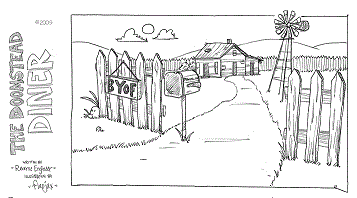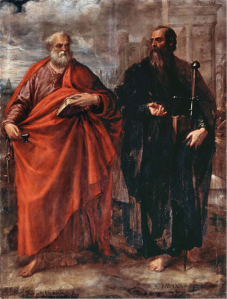Joerg
Dec, 14, 2018
@vexarb
“What is Socialism? Equal incomes, neither More nor Less”
To this George Orwell answered: “All animals are equal, but some animals are more equal than others” (Animal Farm).
And, dear vexarb, “Equal income” in the Soviet Union and the other Warsaw Pact States is a myth. To the contrary: There were huge differences of income in those Communist states. Also all major railway stations had a special waiting room for members of the “Nomenclatura” (something like the “Upper 10.000” in the West) only!.
Orwell was right, Shaw was wrong!
“No taxation – because the State already has all our money.”
No, for the communist countries this was never true. Because the “State” was itself in the pocket of the Nomenclatura. Its like our western States are already in the pocket of a bunch of oligarchs or corporations, owned by them. Especially communal property was extra “privatised” only to get into their pockets (think of Maggie’s railways)!
This is why I am neither a Marxist nor a Liberal – but a MERCANTILIST.
Modern Mercantilism is the most successful State Economy that ever existed. Prussia was the (per capita) poorest German-language state in the early 18th hundred. Frederick-William I of Prussia introduced the Prussian form of Mercantilism, his son Frederick the Great went further on with it and about a hundred years later (delayed by wars Prussia had to fight) Prussia was the most prosperous and technological German state – leaving competitor Austria-Hungary far behind. Mercantilism brought in West-Germany up on its feet after WWII, same to Japan. In the 1970s mercantilist Sweden hat the highest income (per capita) in all of Europe although it only had its own little market of maybe 7 million people, as Sweden was not member of the EEC (predecessor of this disgusting EU) or the EFTA and thus Swedish products (“Volvo”) had to mount high protective tariffs of EEC and EFTA.
And the exchequer of than Germany, Sweden and so on was always hold slim.
This is probably what You, vexarb, fear, that the government/state collects money and then keeps it. But that would not be mercantilist. Instead Mercantilism makes up a “oscillating circuit”. Lets Take Olof Palme’s Sweden. The Swedish that had the highest taxes of Europe and possibly of the world then. That is e. g. income tax and tax on the industry, to name only some. So let’s say an average Swedish physician earned much more than his colleagues in Great Britain (because the Swedish were richer and could pay more). But then he had to pay a hefty tax (much more than in GB). but in the end much more than his colleague in GB had earned was left over for him.
This “oscillating circuit” works like an electric coil and a capacitor It swings to and fro. So the exchequer collects money with tax, especially from corporations and industry (but also from plain citizens). Cheap importers are blocked with a high protective tariff, to install a fair competition. This because corporations in cheap-tax countries can produce much cheaper than those in high-tax countries.
And then the money is distributed again (“oscillating circuit”) by the state. This for infrastructure (in the 18th century: channels. Later railways, then “Autobahn” – in the US “high ways”). Also money goes into state owned factories. Factories that are like geese laying golden eggs for the state/citizens. Think of “Volkswagen” or “Renault” (both “privatised” by now). Also think of the Russian military industry and space industry that Yeltsin was not allowed to also give away to some oligarchs: Today these Russian industries are not only often by technology ahead of their western competitors, but also their products sell like hell – they are also laying “golden eggs”.
Most of the state income though is distributed to the people: Schools, universities, communal transport at no charge, safe and high old-age-pensions, good working hospitals, very affordable health insurance. and so on and on.
ILLUSION OF POWER: Voluntary Servitude Exposed (Part 1)
https://www.youtube.com/watch?feature=player_detailpage&v=bzRh4ClWeaI
Comment: “Any of several types of social organization that ascribe central importance to the groups to which individuals belong (e.g., state, nation, ethnic group, or social class). It may be contrasted with individualism. Jean-Jacques Rousseau was the first modern philosopher to discuss it (1762). Karl Marx was its most forceful proponent in the 19th century. Communism, fascism, and socialism may all be termed collectivist systems. See also communitarianism; kibbutz; moshav.”































